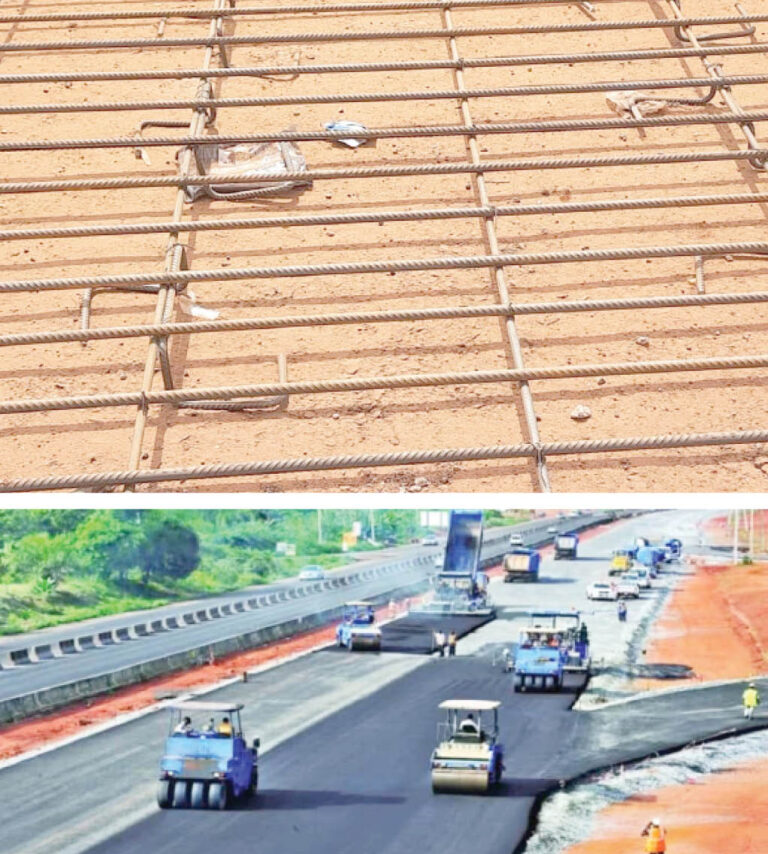Nigeria’s Minister of Works, David Umahi, has proposed a shift from asphalt to concrete for road construction, sparking a debate among experts and stakeholders. Umahi advocates for concrete roads, citing their durability, fire resistance, and reduced maintenance costs compared to asphalt roads.
However, experts caution against the hasty adoption of concrete roads, highlighting their higher initial costs and potential repair challenges. Engineer Habibu Mudi argues that concrete roads are ill-suited for long stretches of highways due to their rigidity and susceptibility to cracking under heavy traffic loads.

“Bitumen roads are far better because of their flexibility,” Mudi asserts, emphasizing the ease of repair and resilience of asphalt surfaces. He further criticizes Umahi’s decision-making process, suggesting that a thorough evaluation by experts should precede such a significant policy shift.
READ ALSO: Works Minister Seeks N217bn to Fund 260 Roads, 8 Bridges
Meanwhile, proponents of concrete roads emphasize their longevity and potential cost-effectiveness in the long run. They point to successful examples like the 43-kilometer Obajana-Kabba road constructed using concrete by Dangote Industries Limited and the 26-kilometer Itori-Ibese concrete road.
The debate over concrete versus asphalt roads is likely to continue as Nigeria seeks to upgrade its road infrastructure. While concrete offers potential advantages in durability and maintenance, its higher initial costs and repair challenges remain concerns. A comprehensive assessment considering both short-term and long-term costs, as well as the suitability for different road types, is crucial before making a definitive decision.
The outcome of this debate will have far-reaching implications for Nigeria’s road construction landscape, influencing the quality, durability, and overall cost-effectiveness of the country’s road infrastructure. Only time will tell whether concrete roads will pave the way for a new era in Nigerian road construction.
Source: Daily Trust
